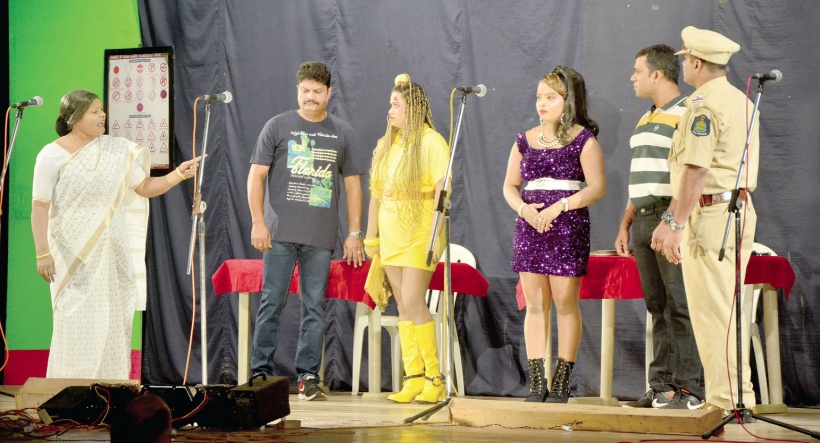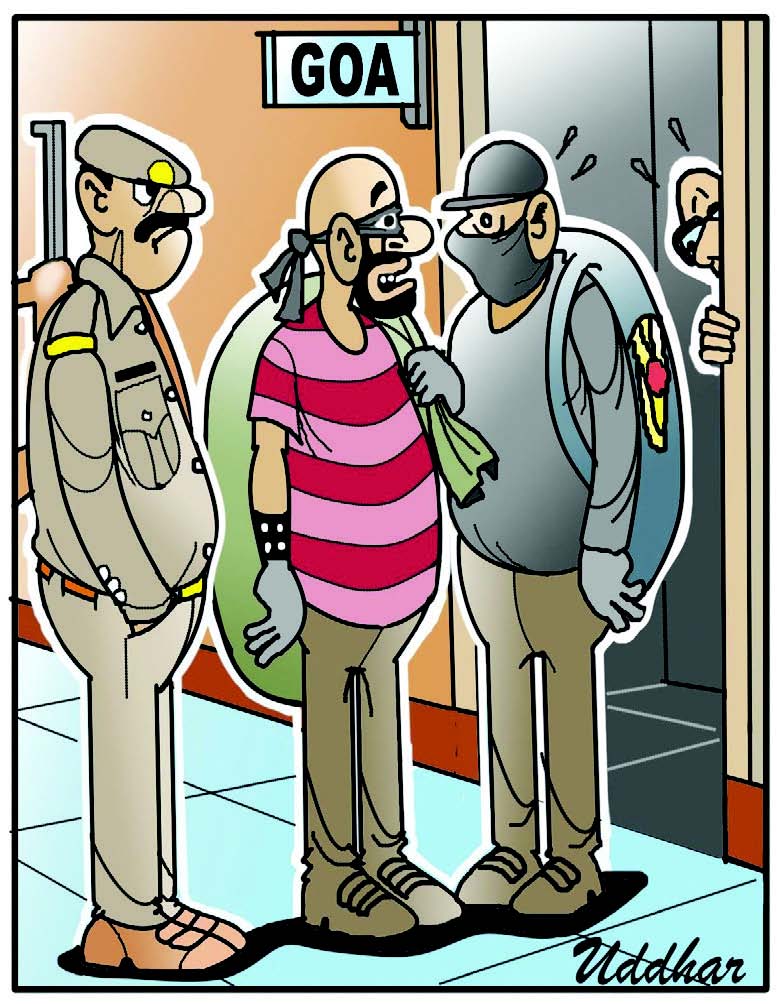
Pio Esteves
Disputes will always prevail among family members over ancestral wealth and property. But it all depends on how one tackles them amicably for lasting ties. Unrelenting greed and the desire to grab everything for oneself spoil good relationships in the family, resulting in quarrels and bitterness, day in and day out. And the final decision to go to court for early settlement of countless issues only prolongs the bitterness.
Under such circumstances, one will not hesitate to wash dirty linen in public, highlighting the caste of the family members. And then heated verbal arguments among spouses even lead to fisticuffs. But will man’s greed for wealth and property ever vanish? When things can be settled by mutual understanding among family members, why go to the extreme? And what guarantee is there that the extreme step taken out of sheer anger and frustration will work in your favour?
The story of ‘Ghor Ek Ghorabo’ revolves around two siblings and their spouses (Ulhas Tari and Antonette de Maina, Franky and Reema, respectively). For all the indifferences and bickering that prevail in the family, the siblings along with their partners do not hesitate to blame the mother (Roma). The mother is made the scapegoat for all the fights that continue among the two daughters-in-law. And to add fuel to fire, the two siblings extend full support to their spouses, irrespective of what the matter is.
Finally, the siblings decide to demolish the old house and construct two separate bungalows. Loans are taken and the structures are ready for the two siblings and their spouses. But what about their mother? Where will she reside? Who will provide her shelter in her old age? Due to utter negligence and sheer irresponsibility on the part of the siblings, what is the fate of the mother? Will the siblings be content with their spouses in their respective residences? Who teaches whom a lesson?
Sammy Tavares’ tiatr ‘Ghor ek Ghorabo’ carries a story which is common in several families. Greed for wealth and property, resulting in conflict between the siblings and their spouses is the highlight of the drama.
Ulhas Tari, who follows the dictates of his wife, has enacted his role to perfection. Antonette de Maina in the commanding role has given her best. On the other hand, Franky is compatible with his stage spouse, Reema. As a hapless mother, Roma wins the hearts of the audience by her performance and two cantos. As a lawyer, Lawry Travasso does a cameo, narrating his story of greed and disaster in imitable style. Caziton de Cacora as the police inspector does justice to his character. He is ably supported by Mario as the constable.
The scene before the intermission is worth a watch. Check the tumbling stones, paving the way for new residential complexes. So also the two newly constructed bungalows in the second half are attractive.
In the comic acts, Ben Evangelisto, Sally, Richard and Princey make efforts to entertain. But the scene of politicians from various parties sharing their views and opinions was unwanted.
In the category of songs, Caziton de Cacora steps in with the opening song, followed by Lawry Travasso, Marcus Vaz, Sammy Tavares, Rosario de Benaulim, Caziton and Roma with solos. There are songs by Rosario and Caziton, Lawry and Reema, Antonette de Maina and Ulhas Tari. A song by Marcus, Ben, Richard and Princey on price hike is worth listening to. Songs by Antonette de Maina, Roma and Reema on in-laws and a duet by Antonette de Maina and Ulhas Tari on inter-religious marriage calls for reflection. Live music provided by Nolvert Cota (trumpet),
Senon (trumpet), Theo Alvares (trumpet), Canon (bass), Norman Cardozo (keyboard) and Jack (drums) is appealing.
